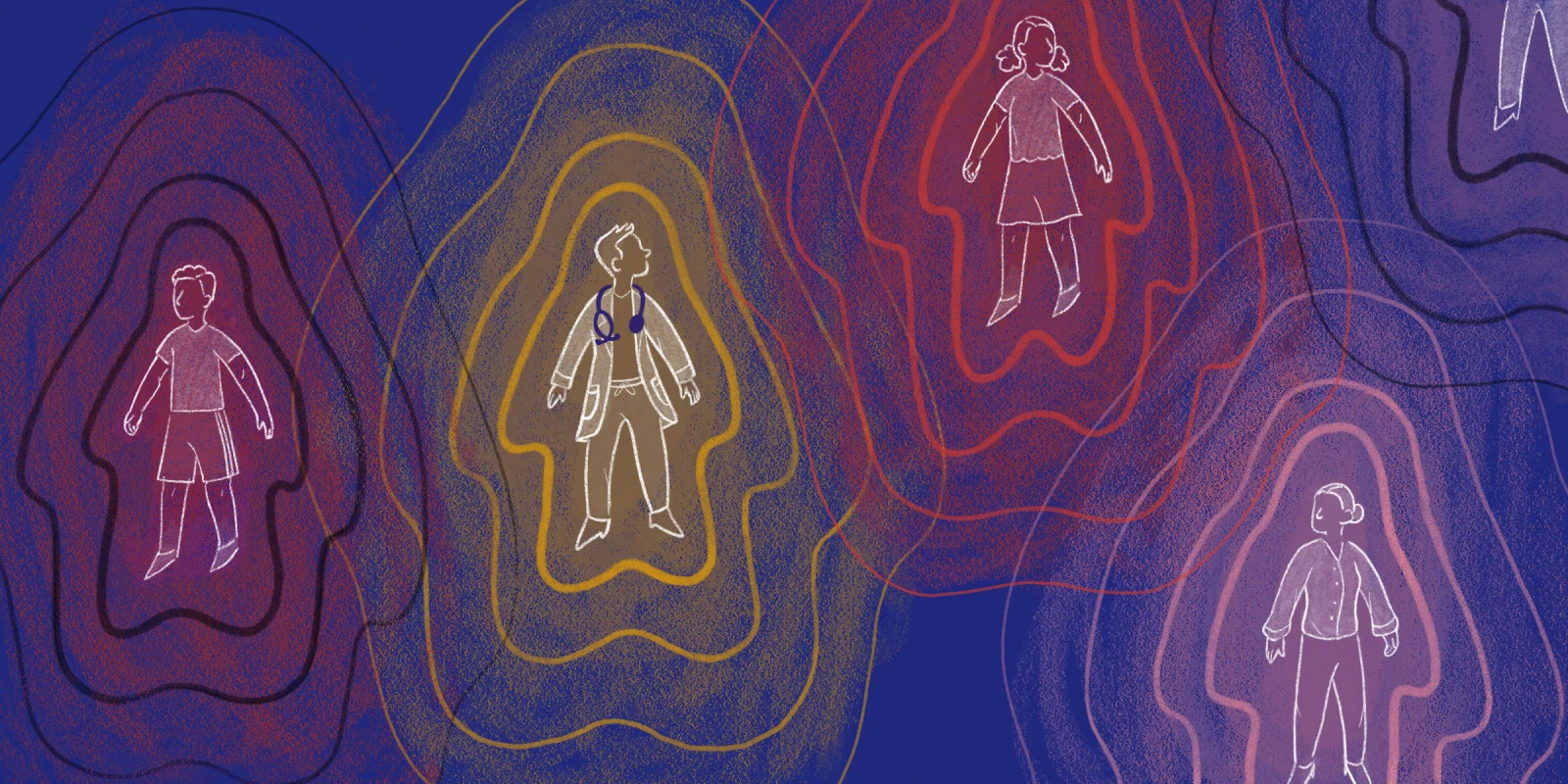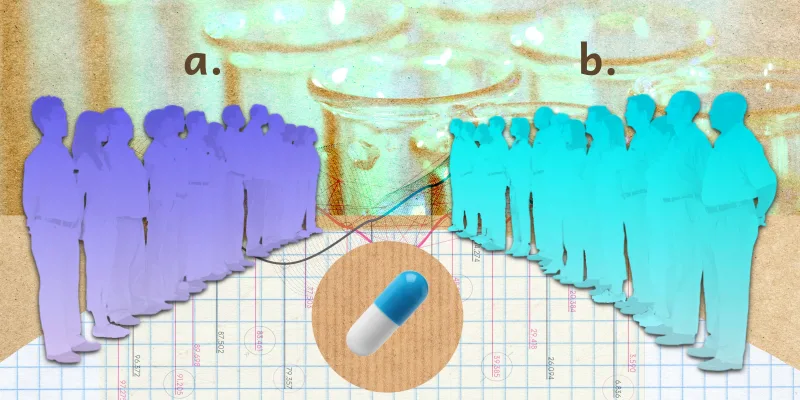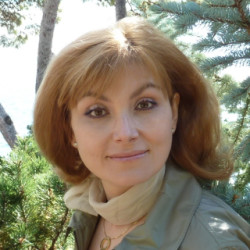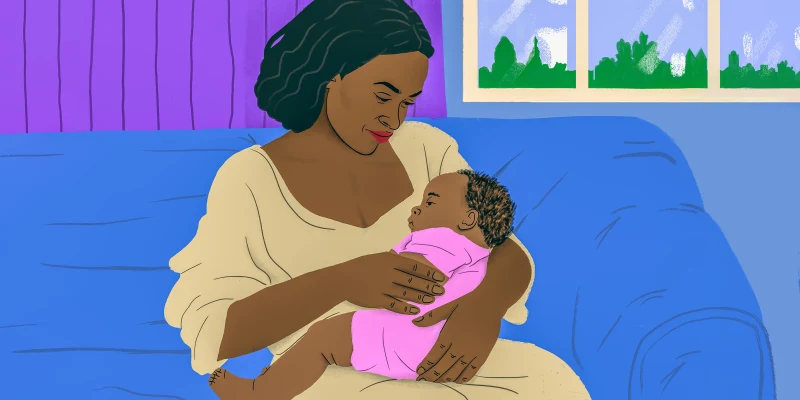In the controlled chaos of a hospital, where time moves quickly, emotions run high, and decisions carry weight, it's easy to let your identity become fully enmeshed with your role as a physician. For many of us in medicine, the white coat doesn’t just symbolize a profession; it becomes a second skin, a shorthand for who we are. But I’ve learned that growth, empathy, and perspective often flourish most when we step outside the boundaries of our chosen fields.
That’s why, year after year, I volunteer with the Houston Rodeo Calf Scramble Committee, mentoring youth who are exploring their own paths in agriculture. For those unfamiliar, the Calf Scramble is one of the Rodeo’s most beloved events, an energetic and often comical spectacle where students chase and attempt to halter calves in an open arena. But beyond the entertainment lies a deep commitment to youth development. When a student catches a calf, they earn a certificate to purchase a livestock project, launching them into months of hard work, responsibility, and personal growth.
As a mentor, my role is to support these students throughout their journey. I guide them through the complexities of animal husbandry, project management, and public presentations. I watch them mature through the experience, learning what it means to care for something beyond themselves, often for the first time. The transformation is inspiring not just for them, but for me as well.
Volunteering in this space connects me to my own roots. My family raises cattle, owns several horses, and instilled a high degree of respect for animals and nature at a young age. I grew up riding horses, hunting/fishing, and working on the ranch since I was a child. In this environment, the values of hard work, accountability, and community support weren’t taught in a classroom or a clinic — they were lived every day. Agriculture is a world where results don’t manifest overnight, and success isn’t always guaranteed. It’s a world that mirrors medicine in many ways but is also beautifully different. It reminds me that character is formed not just in ERs or operating theaters, but in barns, show rings, and early morning feedings.
Stepping into the dusty arena of the Rodeo offers something that the sterile walls of a hospital cannot: a reminder that I am more than my profession. It provides balance and perspective. In this space, I am not “doctor,” I am mentor, volunteer, community member. I laugh with students, celebrate their wins, and offer reassurance in their setbacks. It’s a kind of human connection that medicine sometimes doesn’t allow for.
This dual identity, physician and mentor, has helped me resist the tendency of total self-definition by vocation. It reinforces that who we are is shaped not just by what we do in our careers, but by how we engage with the world around us. Our contributions outside of medicine are not secondary; they are integral to the wholeness of who we are.
More importantly, it sets an example for the next generation, both in agriculture and in medicine. It teaches that fulfillment doesn’t stem from singular success, but from layered meaning. It teaches that leadership is just as powerful in a livestock barn as it is in a hospital ward.
While medicine is often, and at times should be, all-consuming, the role of the physician is not solely defined by a persistent or seemingly robotic preoccupation with laboratory findings, diagnoses, and treatments. Personally, I have found that the greatest amount of healing and understanding often occurs in the moments when I embody the role of a fellow human being rather than an individual who has authority by virtue of possessing medical knowledge. My role volunteering for the Houston Rodeo is one of many components of my identity that keeps me centered and enhances my ability to best serve my patients.
Out on the arena when I am watching these young men and women from around the state come compete in front of tens of thousands of people I am truly inspired. They have tremendous grit, determination, and passion. They work incredibly hard to come to the Rodeo with the chance of earning a monetary prize to then spend over a year raising and tending to an animal. This animal becomes their life. They wake up early, stay up late, and pour an immense amount of care into the process of raising their livestock.
The passion and fortitude of these calf scramble participants feeds back into my experience as a resident physician. The excitement, drive, and dedication that they embody inspires me to share these same characteristics when I serve my patients and fellow co-workers. While the arena in which I work is not covered with large stadium lights or tons of dirt, it is not entirely dissimilar. It has its own lights that illuminate the operative field and technical challenges that can often feel as if one were wading through thick layers of arena dirt.
Medicine is a calling, yes, but it’s not the only one I’ve answered. My involvement in the Rodeo has created very special relationships with members of my community and provided a unique support network for me that aids my endeavors inside and outside the hospital. By investing in my community through the Houston Rodeo, I continue to rediscover not just what I can offer others, but also who I am beyond the white coat.
What community projects do you participate in? Share in the comments!
Dr. Bronson Ciavarra is a current neurosurgery resident at Baylor Scott and White Medical Center - Temple, TX. He enjoys woodworking, making pizzas, spending time on the ranch, and lake days. Bronson is passionate about medical humanities, philosophy of mind, and brain-computer interfaces. Dr. Ciavarra was a 2024-2025 Doximity Op-Med Fellow.
Illustration by Diana Connolly






